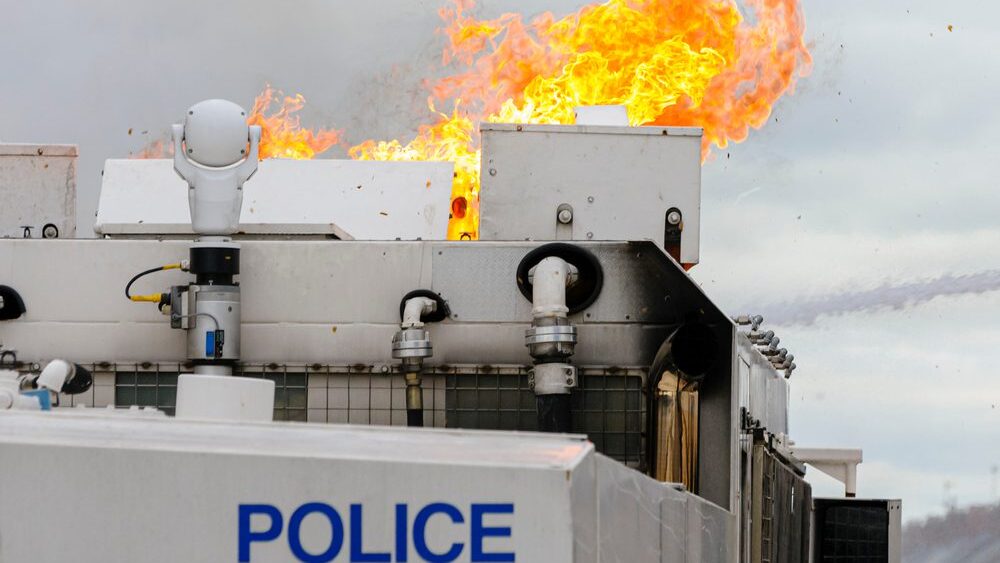A cache of Russian-manufactured grenades was seized during a raid against militant Irish republicans in the city of Derry last week, as authorities suggested that the weaponry had been smuggled from the frontlines of Ukraine in preparation for an attack on police.
Sixteen police officers were injured in low-level rioting on the streets of Derry on Thursday, September 7th, as anti-terror units arrested two men and one woman during an arms seizure in the nationalist estate of Creggan in Derry, the region’s second-largest city along the border with the Republic.
The operation was directed against members of the paramilitary group the New IRA, with a kilogram of plastic explosives, one handgun, and 50 rounds of ammunition found alongside the grenades.
The Police have now deployed more resources to this location #Derry https://t.co/lE3PZuIOYC pic.twitter.com/2dEF3Sc3r4
— NI Emergency Response Vids (@NiResponsevids) September 7, 2023
Sources speaking to the media confirmed that the relatively new grenades matched those used by the Russian army in Ukraine, with an additional police raid Friday night in Derry resulting in the seizure of six improvised explosives.
A police spokesman confirmed that an additional raid had occurred in the nearby town of Strabane on the back of police intelligence gathering, before adding that “the significance of this recovery cannot be underestimated.”
The risk of Russian support for dissident Irish republicans who reject the 1998 peace settlement with the British government in Northern Ireland has been a major fear for security forces since 2014, with many republican groups maintaining ties with the Russian Federation as well as being supportive of Moscow’s current invasion of Ukraine.
— Zlatti71 (@djuric_zlatko) September 8, 2023
Northern Ireland: Clashes broke out in the Creggan area of Derry after the PSNI entered the area to carry out raids.
Local youths reportedly threw Molotov Cocktails, bricks and other objects at police in an attempt to drive them out of the area pic.twitter.com/0bwHMvingM
The only area in the UK to have armed police officers, the Northern Ireland police is still reeling from a bureaucratic error last month that divulged the names and details of the entire police force. Following this severe data breach, Catholic officers sought clarification on bringing firearms to Mass for fear of ambushes.
Still recovering from 30 years of sectarian warfare that left over 3,000 dead, Northern Ireland emerged as a major pressure point during recent Brexit negotiations with London and Brussels carving out a last-minute agreement earlier this year known as the Windsor Framework.
Designed to keep the region largely within the EU customs union for fear of creating a hard border on the island of Ireland and risking a return to paramilitarism, the agreement has contributed to political turmoil in the region.
Politics in Northern Ireland is traditionally polarised between nationalist and unionist parties, with the region’s parliament, Stormont, suspended until further notice due to a refusal by the primary unionist party, the Democratic Unionist Party (DUP), to accept the Windsor Framework, which they view as symbolically and materially undermining the connection with Britain.
Across Europe, there are wider concerns about the flow of surplus weaponry to criminal and paramilitary groups, as reports surfaced in Mexico of American-made Javelin anti-tank missiles falling into the hands of drug cartels.
In July, Europol issued a stern warning saying that the “proliferation of firearms and explosives in Ukraine could lead to an increase in weapons and munitions trafficked into the EU via established smuggling routes or online platforms,” as UK authorities described how arms from the Ukraine war were replacing those from the former Yugoslavia as the primary source for criminals in Europe.






